Lockdown made life worse for two in five children, NHS report says
- Published
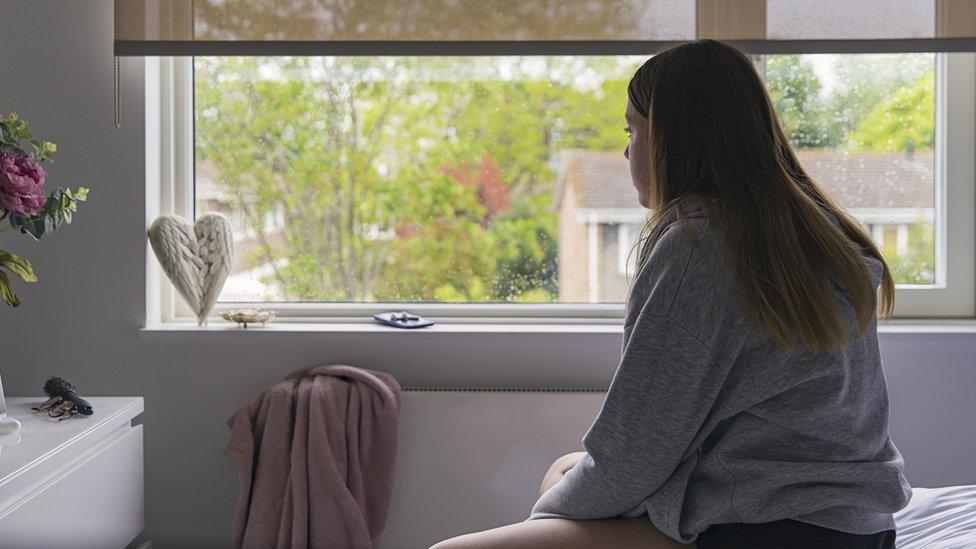
More than 40% of those surveyed felt lockdown had made their life worse
Two in five children aged 11 to 16 feel the coronavirus lockdown has made their lives worse, an NHS report on mental health suggests.
They said their biggest anxieties were about missing school and family and friends contracting Covid-19.
Mental disorders have risen in boys and girls since 2017 and now affect 16% of children, a large survey suggests.
The children's commissioner for England said the increase was "extremely alarming".
Anne Longfield said a properly-funded children's mental health service was needed and every school should have its own NHS-funded counsellor.
Mental health charities say the pandemic has put a huge strain on children, parents and carers.
Complex reasons
NHS Digital's report, external is based on a survey of 3,570 children and young people up to the age of 22 who were interviewed in 2017 and followed up online in July during the coronavirus pandemic.
During this time, rates of mental disorders affecting children's emotions, behaviour and relationships are thought to have risen - from one in nine to one in six.
In boys, they rose from 11% to 16% and in girls from 10% to 15%, the report found.
Prof Tamsin Ford, report author and professor of child and adolescent psychiatry at the University of Cambridge, said the pandemic was likely to have contributed to the increase, although the reasons are complex.
"For teachers with 30 children in a class, they have gone from having three children in their class with difficulties to five, and these are problems which are likely to impact children's development," she said.
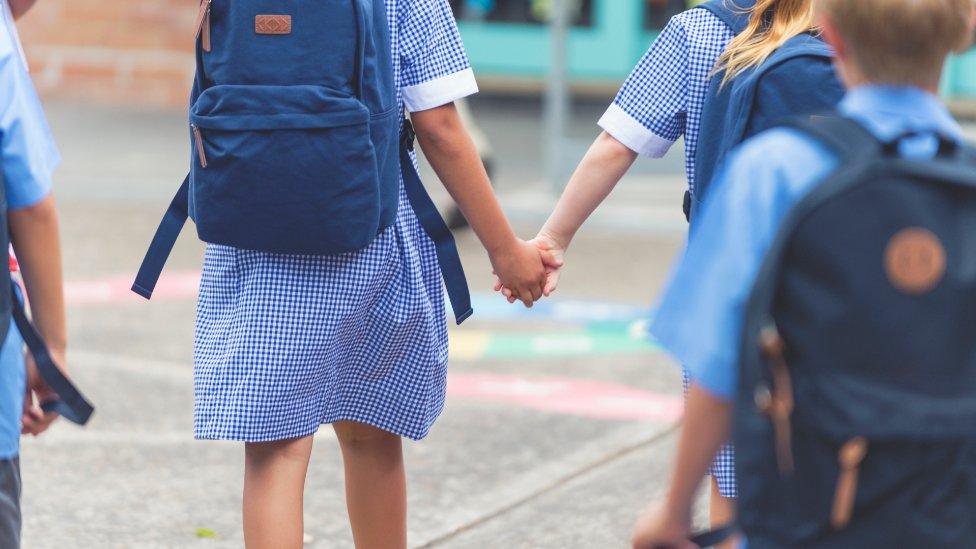
Younger children expressed anxieties about missing out on schoolwork
Previous surveys suggest many children have struggled with the impact of lockdown and ongoing restrictions, but others appear to have coped better and were less anxious when schools were closed.
This survey found 42% of 11- to 16-year-olds and 43% of 17- to 22-year-olds felt lockdown had made their lives worse, with about a third saying they felt they had stayed the same.
Sleeping problems
Children and young people with a probable mental health disorder were more likely to experience anxieties about the pandemic. These ranged from being afraid to leave the house to worries over transmitting the infection and missing schoolwork.
A quarter of those aged five to 22 said they had experienced problems sleeping in the past week. This was more common among girls than boys.
Among 11- to 22-year-old girls with a probable mental health disorder, a third said they often or always felt lonely - compared with 18% of boys in this category.
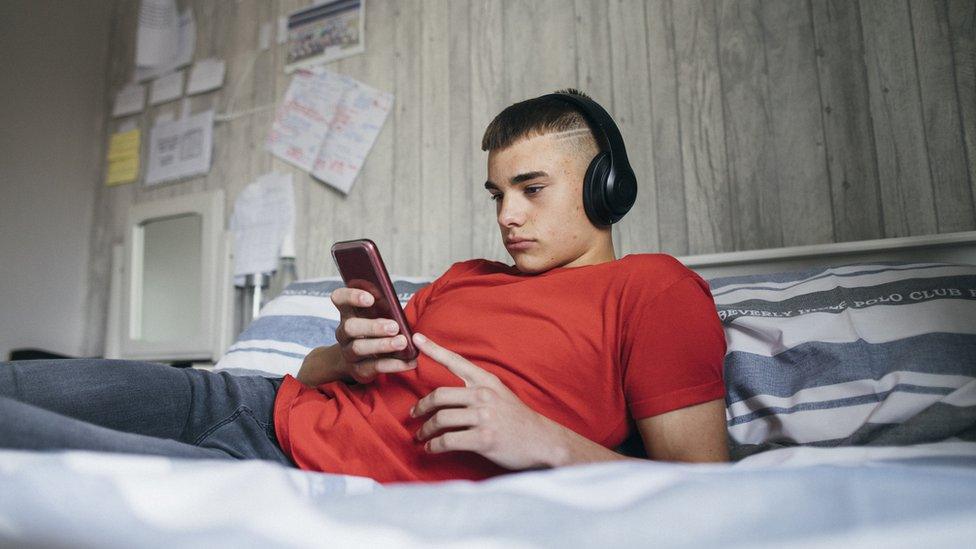
Teenagers are particularly prone to anxiety, which could have been made worse by the pandemic
The report also found that children from white ethnic backgrounds were more likely than those from black and ethnic minority backgrounds to be affected by probable mental health disorders.
And the percentage affected increased from 13% to 18.8% between 2017 and 2020.
Among ethnic groups over the same period, the rise was from 3.8% to 7.5%.
Prof Ford said previous studies had found a similar effect on white children but the reasons weren't clear.
She said the extended family ties in ethnic minority households that spread the virus more quickly and increased their risk of Covid-19 could also "be supportive for mental health".
'No room for complacency'
Charity YoungMinds said many young people who are struggling to cope have not had the support they needed.
"Schools urgently need additional funding to enable them to commission mental health support, and the NHS and charities must have the resources to provide help to all those who need it.
"With months of uncertainty ahead of us, there is absolutely no room for complacency," said chief executive Emma Thomas.
The NSPCC said mental health and wellbeing problems among children had been "amplified by the pandemic".
"We've delivered over 37,000 counselling sessions with children just about their mental health since April - every day they tell us they are struggling to cope," a spokesperson said.
- Published7 October 2020
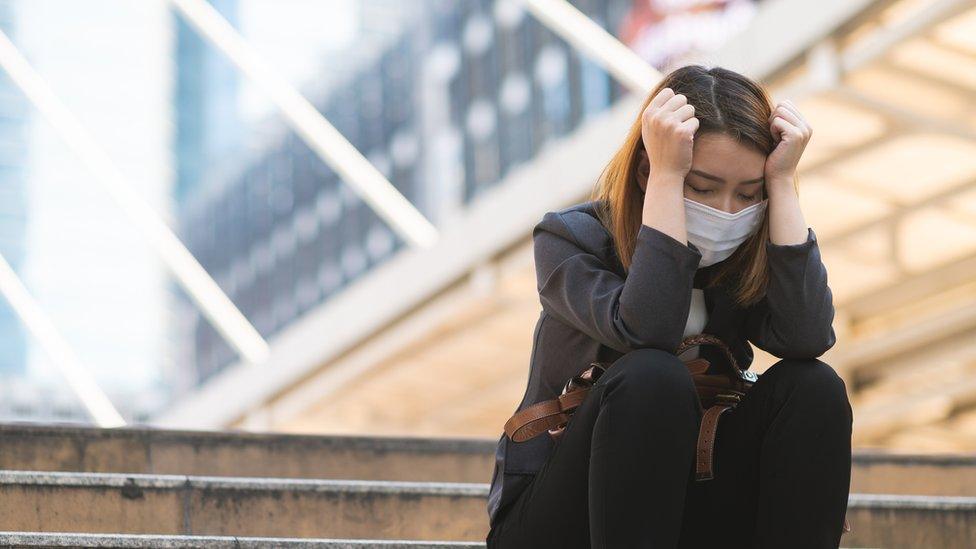
- Published8 October 2020
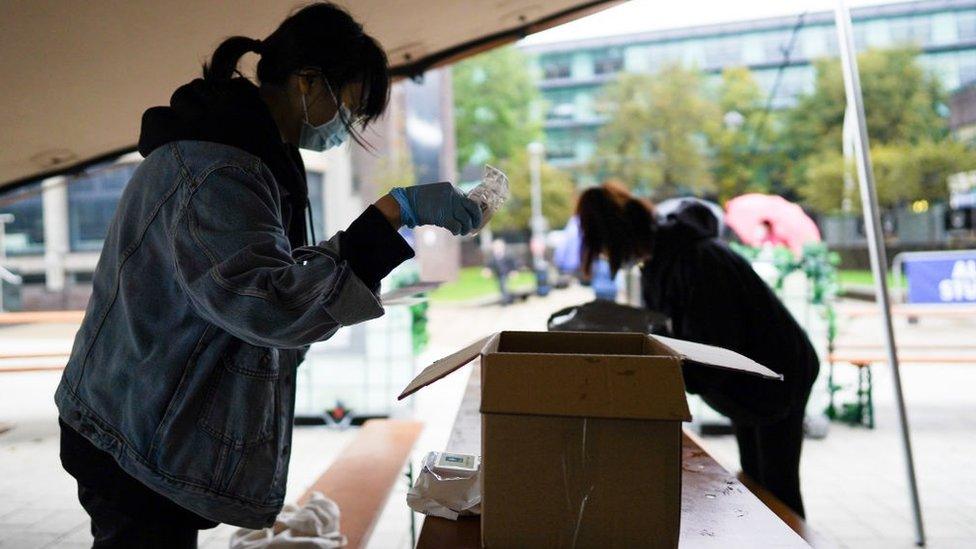
- Published28 September 2020
- Published27 September 2020
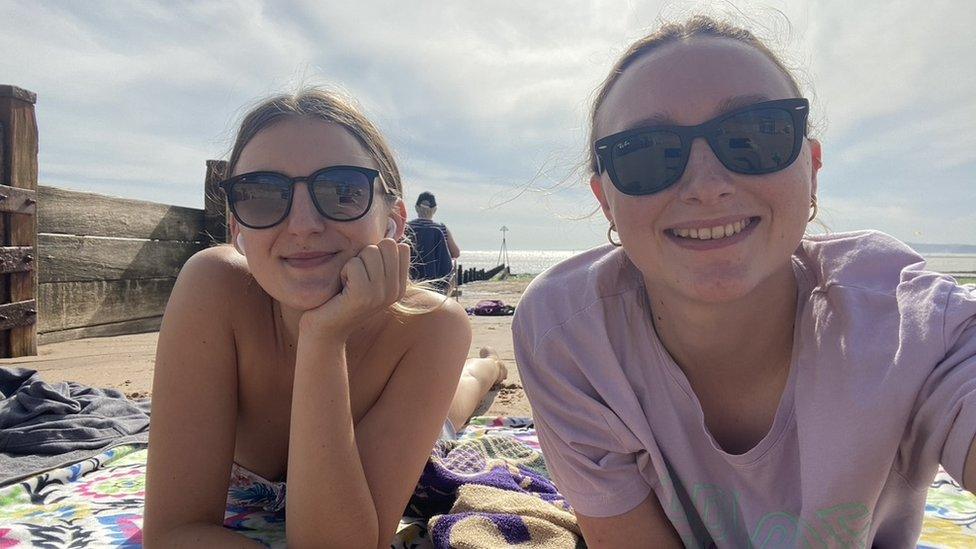
- Published28 August 2020
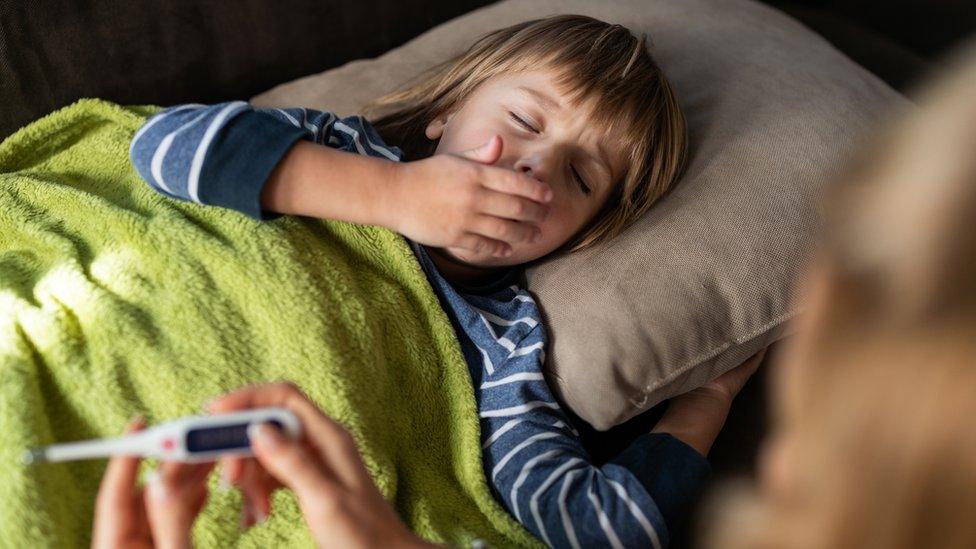
- Published13 June 2020
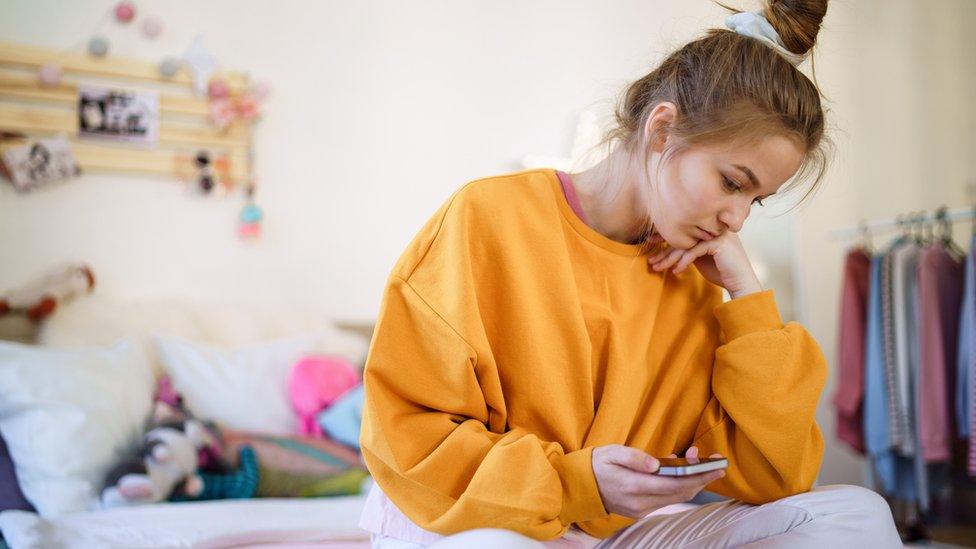
- Published14 June 2020
